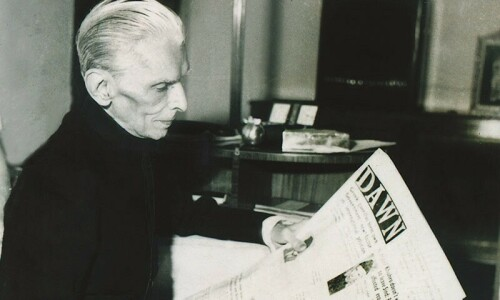“Jammu and Kashmir did not retain any sovereignty after accession to India,” -
CJI D Y Chandrachud.
"No verdict is final...," says Mehbooba Mufti, former Chief Minister and PDP chief
The Praja Parishad was founded in November 1947 by RSS leader Balraj Madhok. It opposed the special status granted to the state under Article 370 of the Indian Constitution.
In 1964, a resolution by the Akhil Bharatiya Pratinidhi Sabha (ABPS) — the highest decision-making body in the RSS — not only asked for the abrogation of Article 370, but also to turn the state into a Union Territory.
In its 2002 resolution too, the Sangh supported the demand for the reorganisation of Kashmir.
The RSS has so far passed 27 resolutions in its apex decision-making bodies, describing the Article as a “post-dated cheque for Partition” that “encourages separatist tendencies” in other states, reports 'Indian Express'.
Its first resolution on Kashmir came in 1953, with the title “Movement for Complete Integration of Kashmir with Bharat”. It was a response to alleged repression of an agitation by the Praja Parishad, a political party closely connected with the RSS, for “effecting the complete merger of the Jammu and Kashmir area into Bharat”.
It was this movement that even Jana Sangh founder Syama Prasad Mookerjee associated himself with, holding a series of public meetings across North India in 1952 and 1953, demanding the complete integration of Kashmir with India. Mookerjee at that time gave the clarion call: “Ek desh mein do vidhan, do nishan nahin chalenge, nahin chalenge (Two Constitutions and two flags in one country are not acceptable)”.
Mookerjee travelled to Kashmir in 1953 to agitate over the demand, and was arrested. He died in detention.
In 1982, the RSS’s top executive body, the Akhil Bharatiya Karyakari Mandal (ABKM), passed a resolution on the J&K government’s Resettlement Bill that sought to give Indian citizenship to Kashmiris who had migrated to Pakistan at the time of Partition.
CJI D Y Chandrachud in his order read out the operative part of the verdict written by him for himself and Justices B R Gavai and Surya Kant, Justices Sanjay Kishan Kaul and Sanjiv Khanna wrote separate but concurrent judgments.
CJI Chandrachud observed the petitioners’ contention that the centre could not take any decision during proclamation under Article 356 was not acceptable, TOI said.
“Article 370 of the Constitution was an interim arrangement due to war conditions in state. Constituent assembly of Jammu and Kashmir was never intended to be permanent body,” CJI Chandrachud was quoted as saying.
The 2019 declaration was “a culmination of the process of integration and as such is a valid exercise of power”, the court said in its verdict.
The apex court said Kashmir did not retain the element of sovereignty after joining India. It further said it did not need to adjudicate on the validity of the presidential proclamation in the region as the petitioners had not challenged it.
Noting that Article 370 was a temporary provision, the SC said India-held Kashmir became an “integral part” of the country as reflected in Articles 1 and 370 of its constitution.
The CJI observed that Article 370 was meant for constitutional integration of the region with the union and not for disintegration, and that the President can declare that the said article ceases to exist. The SC also upheld the reorganisation of Ladakh as a union territory.
"The verdict today is not just a legal judgment; it is a beacon of hope, a promise of a brighter future and a testament to our collective resolve to build a stronger, more united India. #NayaJammuKashmir," tweeted Prime Minister Narendra Modi.
He also said: "Today's Supreme Court verdict on the abrogation of Article 370 is historic and constitutionally upholds the decision taken by the Parliament of India on 5th August 2019; it is a resounding declaration of hope, progress and unity for our sisters and brothers in Jammu, Kashmir and Ladakh.
The Court, in its profound wisdom, has fortified the very essence of unity that we, as Indians, hold dear and cherish above all else.
"I want to assure the resilient people of Jammu, Kashmir and Ladakh that our commitment to fulfilling your dreams remains unwavering.
"We are determined to ensure that the fruits of progress not only reach you but also extend their benefits to the most vulnerable and marginalised sections of our society who suffered due to Article 370."
“The ABKM (of the RS) is of the emphatic opinion that Article 370 of the Constitution, under cover of which the J&K Assembly is manoeuvring to achieve its separatist and communal ends, should be scrapped, without any more delay. Perpetuation of such an obnoxious section will only place the integrity, security and freedom of the country constantly under a hanging threat and embolden separatist forces in other parts of the country as well,” it said.
In 1984, in the context of Sikh militancy, the ABKM again demanded abrogation of Article 370, arguing that weapons in Punjab were coming through Kashmir. In 1986, the ABPS passed a resolution demanding the Article’s removal, as it was “inspiring extremism in Punjab and Mizoram”.
The next year, the ABPS said in a resolution that Article 370 was encouraging pro-Pakistan forces in Kashmir to indulge in anti-Hindu conspiracies.
In 1990, at the peak of militancy in the Valley, an ABPS resolution said that continuing to retain Article 370 was akin to putting “a question mark on the full integration of the State and to accord legal sanction to secessionist mentality”. A 1993 ABKM resolution said Article 370 was being used as a handle by “unscrupulous politicians to exploit the masses”.
Through the ’90s and early 2000s, when militancy raged in the region, the RSS regularly came out with resolutions on Kashmir that spoke about the need for its integration with India and the dangers of granting more autonomy to Kashmir, apart from seeking abrogation of Article 370.










No comments:
Post a Comment